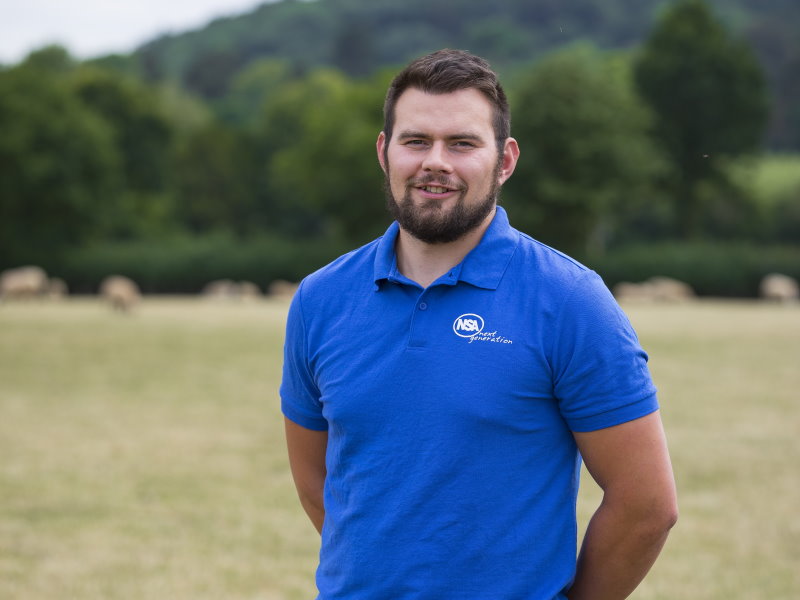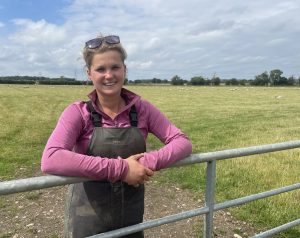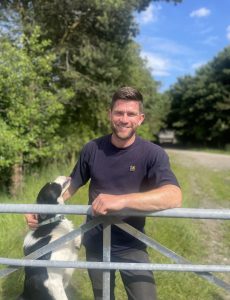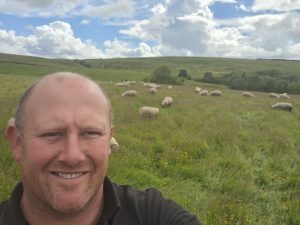Bleddyn Davies, Blaenglowon, Talgarreg
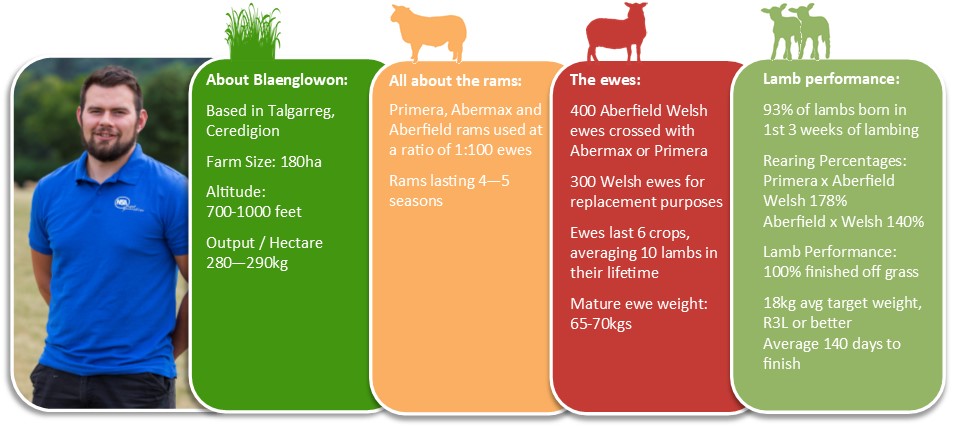
Bleddyn Davies says the future of his 700-ewe enterprise is about maximising output from homegrown forage in a sustainable, regenerative system. And he’s well on the way towards achieving that goal. Meticulous rotational grazing management combined with Innovis genetics are enabling lambs to take an average 140 days to finish to 18kg target weight and grade R3L or better, whilst the entire crop is finished off forage within nine months.
“It’s all about maximising the green stuff which is not only the cheapest form of feed, but grass also provides a better opportunity for carbon sequestration than woodland,” he says. “There’s a lot being talked about regenerative farming, however that’s what we’ve already started on; maximising output from homegrown resources and farming in an efficient manner.
“Blaenglowon Fawr used to breed Welsh Mules while all its commercial lambs were fed creep from start to finish,” Bleddyn explains. “However, in the last 10 years we’ve been working on the genetics – we wanted to change strategy and add value to our Welsh flock by breeding a more efficient ewe, better quality lambs and at the same time reduce costs. Ten years ago we invested in our first Innovis ram and have never looked back.
“We are breeding a lighter 65kg to 70kg ewe which is enabling us to increase stocking rate and while she requires less maintenance, she is capable of maintaining lamb output at the same level as a larger ewe,” he says adding: “More recently, since focusing on improving our grazing and developing a rotational grazing system, clover is doing the work and we’ve been able to cut fertiliser application by 30%. Concentrate fed per year has been reduced to at least a third of previous to last season’s 4t plus 1t soya.”
